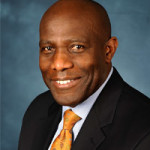Ernesto Butcher (Korea 1968-70) Unsung by the Peace Corps
You most likely have never heard of Ernesto Butcher unless you were a PCV in South Korea in 1968-70, or you worked for the New York Port Authority in the days of 9/11. I never heard of him until Dick Lipez (Ethiopia 1962-64) alerted me to Ernesto Butcher’s obituary in The New York Times on Saturday, May 24, 2014.
Ernesto Butcher died on May 15 in Maplewood, N.J. He was 69. He apparently had a heart attack while jogging according to his wife, Kristen Peck Butcher.
Most RPCV operate (with some exceptions) in the shadow of fame or notoriety and are content on getting the job done. Perhaps it is a hangover from working in totally obscurity in faraway villages of the world and just being satisfied with what can be accomplished without a lot of fanfare. Ernesto Butcher appears to have been that sort of guy, and it has taken his Obit in the Times to bring all his many accomplishments to notice.
After the Peace Corps, after a graduate degree in international affairs from the University of Pittsburgh, (and fluent in Korean), it would appear that Butcher might turn his attention to the State Department or AID. But no. Ernesto, who, by the way, was born in Panama and raised in Brooklyn, becoming a U.S. citizen one year before joining the Peace Corps, went to work for the Port Authority in New York City.
Early in his career, he was manager of the New York City bus terminal where he rid it of drug addicts and prostitutes by persuading state officials to send him social workers; they helped place most of the bus terminal’s vagrant population in rehabilitation programs and halfway houses. As Butcher said at the time, “We wanted to provide an alternative, not compound the problem.”
Next he went on to becoming chief operating officer of the George Washington Bridge. Here he would introduce E-Z Pass, light rail AirTrains to Kennedy and Newark Airports, and oversee the decade-long stripping and repainting of the George Washington Bridge.
Then came 9/11.

Among the 2,700 people killed that day at the World Trade Center, where the Port Authority of New York and New Jersey had their offices, 84 were agency employees. One of the men was the executive director and Ernesto Butcher’s boss.
Now Butcher, as the most experienced surviving operations officer, was in charge of the Port Authority during these terrible days. For two days he took frantic calls from relatives of 150 authority employees initially reported missing, and then he gave the signal to reopen the system: resuming operations at Kennedy, La Guardia and Newark Airports; the George Washington Bridge; two Hudson River tunnels; the shipping terminals of Brooklyn, Jersey City and Newark, and a dozen other facilities run by his agency.
On September 13, 2001, he announced, “I’m here today to assure the people of New York and New Jersey, and throughout the world, that the Port Authority is open for business.”
Ernesto would spent the days, too, delivering eulogies at 84 funerals and memorial services for authority employees.
He is remembered and widely praised for his work in the post-9/11 Days.
Since 1999 Ernesto worked with dozen of board chairmen, the governors of New York and the governors of New Jersey, but by 2010, he was telling his family that the political appointees in New Jersey Governor’s office were “pushing him out the door.”
So, in April, 2012, he retired, ending a 41-year career at the authority.
The political appointees of Governor Chris Christie-Bill Baroni and David Wildstein,–had begun to exclude Ernesto from meetings. He was being blamed for overruns in the rebuilding of the World Trade Center, and large bridge and tunnel toll increases in 2011, though he had nothing to do with those budgets. “It is unconscionable for a man of Ernesto’s integrity to be forced to end his distinguished career under a cloud,” said Christopher Ward, the authority’s executive director, after hearing of Ernesto’s death.
Baroni and Wildstein, of course, would both resign their appointments in 2013 from the Port Authority over their own involvement in the shutdown of lanes at the George Washington Bridge. Christopher Ward is quoted in the Times article, “Bridgegate would not have happened if Ernesto had still been there.”
Besides his wife, Ernesto is survived by a daughter, Mijha Butcher Godfrey; a granddaughter, and three stepchildren.
Ernesto Butcher is an example of yet another PCV who leaves the Peace Corps and comes home to earn an advance degree, marry and raise a family, and have a exceptional professional career in America.
When will the agency begin to recognize and honor the men and women who made the Peace Corps, and who continue to lead ‘by example,’ with their good work here in America and around the world?
I never would have known about Ernesto without your diligence, John. Thank you again for bringing yet another story of a powerful person, known only by the hundreds, if not thousands, he helped.
Thank you for this thoughtful article about my cousin. We were not in contact over the years but he was a dutiful nephew to my father and looked out for him until he died.
I worked with Ernesto and always remember his affability.He was always tailored to the T and emitted a continental disposition. Descansa en paz Ernesto y que te vendigo Dios. Sincerely Mario Santos. Hi